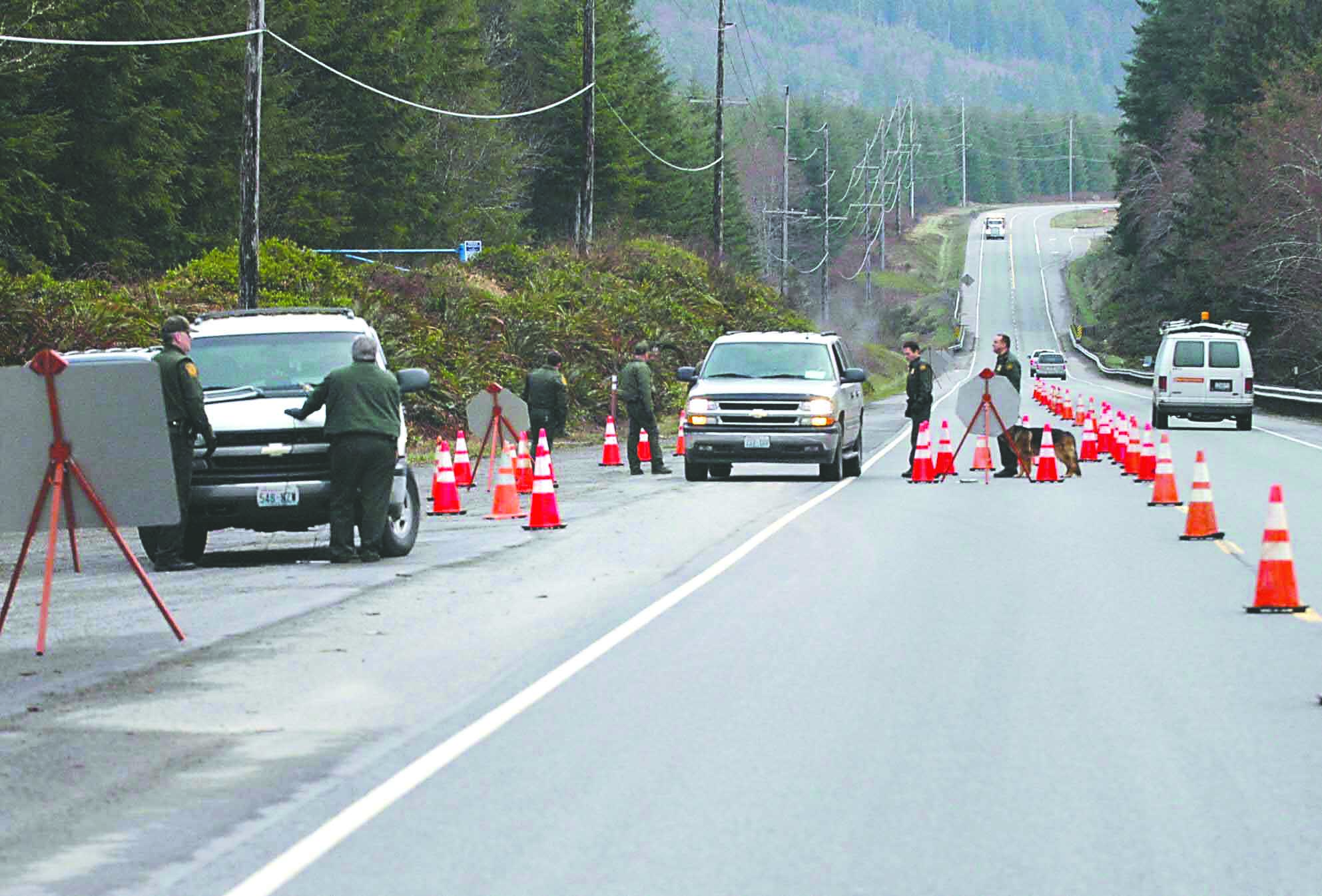PORT ANGELES — Local and regional immigrant-rights activists hailed a settlement Tuesday that will require the U.S. Border Patrol to share records of traffic stops it makes in Clallam and Jefferson counties for 18 months.
Under the agreement, agents based at the agency’s Port Angeles station at 110 Penn St. also will be trained about traffic stops that require reasonable suspicion under the Fourth Amendment.
Jorge Baron is executive director of the Seattle-based Northwest Immigrant Rights Project, a legal aid organization that co-filed the lawsuit with the American Civil Liberties Union on behalf of three Clallam County West End plaintiffs.
Baron described the settlement as a “step forward.”
“We don’t want to understate or overstate the significance of it,” Baron said.
“We think it’s an important step forward.”
Baron said the yearlong training and 18-month monitoring pieces of the settlement will help the agency comply with the law.
“We do think it is a good development, but the work is not done yet,” he added.
While the settlement is specific to the North Olympic Peninsula, Baron said he was hopeful it would call attention to federal lawmakers about the need to “provide strong oversight of this agency,” particularly if immigration reform doubles the size of the Border Patrol.
Seattle Border Patrol spokesman Mike Milne was not available for comment Tuesday.
Agency spokesman Jeffrey Jones in Blaine directed media inquiries to the U.S. Attorney’s Office in Seattle.
The settlement was announced by U.S. Attorney Jenny A. Durkan, the Northwest Immigrant Rights Project and the American Civil Liberties Union of Washington State.
The Border Patrol’s presence on the North Olympic Peninsula has increased dramatically in the past seven years, growing from four in 2006 to 42 in mid-March.
In September 2012, the Border Patrol station moved from the Richard B. Anderson Federal Building in downtown Port Angeles to a sprawling new $11.9 million headquarters about 2 miles east of downtown.
The Forks Human Rights Group has been conducting in-person documentation of Border Patrol stops in the West End since 2008.
Group organizer Lesley Hoare said the Border Patrol now will have to back up their stops with justification, which they have not done in the past.
“This should protect our community’s rights to a much greater degree,” she said Tuesday.
“People should be able to go about their daily life with more security that they won’t be harassed because of the way they look.”
Preschool teacher and Forks Human Rights Group member Manuela Velasquez said Tuesday she is “very happy” about the settlement.
“This is going to be taken very well because we always felt the discrimination,” she said.
“This is one less thing to worry about when we are walking on the street or driving our vehicles to places.
“A lot of people have stopped going to Port Angeles, families have decided not to go to Port Angeles, with all that’s going on.”
Hoare and Velasquez said it seems Border Patrol agents are making far fewer stops in the West End than they once did.
“They haven’t been around for a long time,” Velasquez said.
“Occasionally, we see one or two [agents] here and there.”
Until agents’ presence became less noticeable, “they were practically chasing Latinos,” Velasquez said.
Hoare said she hopes the settlement “keeps things going in the right direction.”
Lois Danks of Port Angeles, who organized Stop the Checkpoints in response to increased Border Patrol activities on the Peninsula, was not immediately available for comment.
________
Reporter Rob Ollikainen can be reached at 360-452-2345, ext. 5072, or at rollikainen@peninsuladailynews.com.
Senior Staff Writer Paul Gottlieb can be reached at 360-452-2345, ext. 5060, or at pgottlieb@peninsuladailynews.com.

